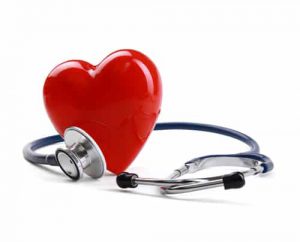 By now, you’ve probably heard that sleep apnea can cause other health complications. What you may not understand is, this sleep disorder can, in fact, dangerously affect your heart. Whether you have obstructive sleep apnea (OSA) or central, you experience breathing cessations throughout your sleep cycle, causing your body to go without oxygen for sporadic periods of time. While doctors are still unsure of the exact relationship between the two, studies have shown that the risk for heart disease and heart attack greatly decreases when a patient is treating their sleep apnea.
By now, you’ve probably heard that sleep apnea can cause other health complications. What you may not understand is, this sleep disorder can, in fact, dangerously affect your heart. Whether you have obstructive sleep apnea (OSA) or central, you experience breathing cessations throughout your sleep cycle, causing your body to go without oxygen for sporadic periods of time. While doctors are still unsure of the exact relationship between the two, studies have shown that the risk for heart disease and heart attack greatly decreases when a patient is treating their sleep apnea.
Exploring The Correlation
Lack of oxygen, in any way, causes your body to work overtime to get the oxygen flowing – increasing your heart rate and blood pressure. When you suffer from sleep apnea, even in mild forms – you’re losing oxygen anywhere from 5 to over 30 times each night. When your blood pressure is increased this often, it begins to affect your body even during the time you’re awake.
High blood pressure increases your risk for other heart conditions like cardiovascular disease, stroke, and heart attack.
Do You Have Sleep Apnea?
Even though you may not be aware of the symptoms you’re experiencing, you could have a sleep disorder. Especially if you’re experiencing excessive daytime sleepiness – although you may mistake it for fatigue, or even depression. Often times, sleep apnea goes misdiagnosed or undiagnosed because of its broad range of symptoms (and that most of them happen when you’re unconscious).
If you sleep with a partner, they may be the first to alert you that your snoring is disruptive. Persistent, loud snoring is also another indicator that you’re not getting enough oxygen in your sleep. In some cases, they may even witness your breathing cessations, especially if you wake abruptly to gasp for air.
Don’t ignore the signs – seek a medical professional if you think you could be suffering from a sleep disorder. Treatment is right around the corner, and you’ll be protecting your heart health (overall health) and getting a full night’s rest in no time!






